I have made a String extension for validating the form in Swift 3 language. The code is below:
import UIKit
extension String {
// Validating Email ID
func isValidEmail(testStr:String) -> Bool {
let emailRegEx = "[A-Z0-9a-z._%+-]+@[A-Za-z0-9.-]+\\.[A-Za-z]{2,}"
let emailTest = NSPredicate(format:"SELF MATCHES %@", emailRegEx)
return emailTest.evaluate(with: testStr)
}
// Validating the User name
func isValidUserName(testStr:String) -> Bool {
let RegEx = "\\A\\w{7,18}\\z"
let Test = NSPredicate(format:"SELF MATCHES %@", RegEx)
return Test.evaluate(with: testStr)
}
// Validating the phone number
var isPhoneNumber: Bool {
do {
let detector = try NSDataDetector(types: NSTextCheckingResult.CheckingType.phoneNumber.rawValue)
let matches = detector.matches(in: self, options: [], range: NSMakeRange(0, self.characters.count))
if let res = matches.first {
return res.resultType == .phoneNumber && res.range.location == 0 && res.range.length == self.characters.count
} else {
return false
}
} catch {
return false
}
}
// validating the password
/*
Use the function of Swift 3.0.
1. 8 characters length
2. alphabet
3. special character
regex Syntax Explanation :
(?=.[a-z]) for Character.
(?=.[$@$#!%?&]) for special character.
{8,} for length which you want to prefer.
*/
func isPasswordValid(_ password : String) -> Bool{
let passwordTest = NSPredicate(format: "SELF MATCHES %@", "^(?=.*[a-z])(?=.*[$@$#!%*?&])[A-Za-z\\d$@$#!%*?&]{8,}")
return passwordTest.evaluate(with: password)
}
// validating the password and confirm password are same........................
func isPasswordSame(password: String , confirmPassword : String) -> Bool {
if password == confirmPassword{
return true
} else {
return false
}
}
// validating Blank Text........................
var isBlank:Bool {
return self.trimmingCharacters(in: CharacterSet.whitespacesAndNewlines).isEmpty
}
}
But when i am trying to use this extension class in other view controller through the code :
if isValidEmail("kirit@gmail.com"){
print("Validate EmailID")
}
else{
print("invalide EmailID")
}
